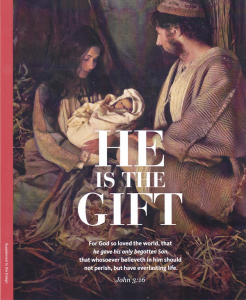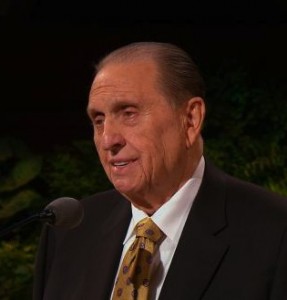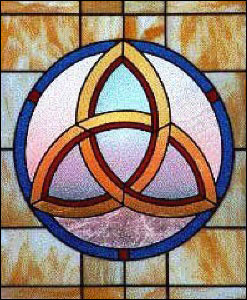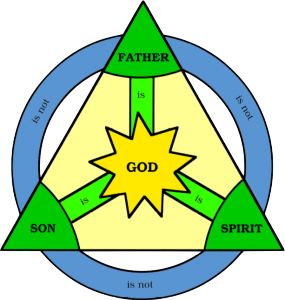
It’s Throwback Thursday!
The following blog article originally posted at Mormon Coffee on March 6, 2006.
——————
I was reading an article in the Deseret News on Saturday [March 4, 2006] that discusses the history of “The Seven Deadly Sins.” At the end of the article the journalist mentions a fireside talk the late LDS Apostle Bruce R. McConkie gave back in 1980 titled “The Seven Deadly Heresies” I’m sure I’ve read that talk before, but out of curiosity I read it again today. There are many things of interest in Mr. McConkie’s talk, and I may address more of them in the future; but today I thought we could look at just two of the heresies Mr. McConkie was concerned had “crept in among us [Latter-day Saints].”
To set the stage, so to speak, and to put his address in authoritative context, Bruce McConkie began his talk this way:
“I have sought and do now seek that guidance and enlightenment which comes from the Holy Spirit of God. I desire to speak by the power Of the Holy Ghost so that my words will be true and wise and proper. When any of us speak by the power of the Spirit, we say what the Lord wants said, or, better, what he would say if he were here in person.”
Important for the context of what was to follow, Mr. McConkie said,
“I shall speak on some matters that some may consider to be controversial, though they ought not to be. They are things on which we ought to be united, and to the extent we are all guided and enlightened from on high we will be. If we are so united-and there will be no disagreement among those who believe and understand the revealed word-we will progress and advance and grow in the things of the Spirit; we will prepare ourselves for a life of peace and happiness and joy here and now, and for an eventual eternal reward in the kingdom of our Father.”
Please keep this in mind.
Mr. McConkie began with the first heresy on his list:
“Heresy #1: There are those who say that God is progressing in knowledge and is learning new truths.
“This is false–utterly, totally, and completely. There is not one sliver of truth in it. It grows out of a wholly twisted and incorrect view of the King Follett Sermon and of what is meant by eternal progression…
“I have been sorely tempted to say at this point that any who so suppose have the intellect of an ant, and the understanding of a clod of miry clay in a primordial swamp. But, of course, I would never say a thing like that.” (Mr. McConkie meant this last statement as a joke and it was understood as such by his audience. I’ve included it here because, though said with a smile, it illustrates the idea that faithful Latter-day Saints would never believe such nonsense. Please note that most internet sources for Mr. McConkie’s speech have edited this portion out of the text.)
Though Mr. McConkie claims the doctrine that God is progressing in knowledge is heresy, the prophets that laid the foundation of the LDS Church in the early days taught it was true.
“Brother Orson Pratt, has in theory, bounded the capacity of God. According to his theory, God can progress no further in knowledge and power; but the God that I serve is progressing eternally, and so are his children: they will increase to all eternity, if they are faithful” (President Brigham Young, Journal of Discourses 11:286, 1867).
“God himself is increasing and progressing in knowledge, power, and dominion, and will do so, worlds without end. It is just so with us” (President Wilford Woodruff, Apostle, Journal of Discourses 6:120, 1857).
Mr. McConkie’s sixth heresy:
“Heresy #6: There are those who believe or say they believe that Adam is our father and our god, that he is the father of our spirits and our bodies, and that he is the one we worship…
“Anyone who has read the Book of Moses, and anyone who has received the temple endowment, and who yet believes the ‘Adam-God Theory’ does not deserve to saved.”
This heresy was taught by Mormonism’s second Prophet for more than 20 years. For example, Brigham Young taught in 1852:
“Now hear it, O inhabitants of the earth, Jew and Gentile, Saint and sinner! When our father Adam came into the garden of Eden, he came into it with a celestial body, and brought Eve, one of his wives, with him. He helped to make and organize this world. He is MICHAEL, the Archangel, the ANCIENT OF DAYS! about whom holy men have written and spoken–HE is our FATHER and our GOD, and the only God with whom WE have to do…”
“Jesus, our elder brother, was begotten in the flesh by the same character that was in the garden of Eden, and who is our Father in Heaven. Now, let all who may hear these doctrines, pause before they make light of them, or treat them with indifference, for they will prove their salvation or damnation” (President Brigham Young, Journal of Discourses 1:50-51. Italics and capitalization retained from the original.).
And in 1873:
“How much unbelief exists in the minds of the Latter-day Saints in regard to one particular doctrine which is revealed to them, and which God revealed to me — namely that Adam is our father and God…Our Father Adam is the man who stands at the gate and holds the keys of everlasting life and salvation to all his children who have or ever will come upon the earth” (Sermon delivered on June 8, 1873. Printed in the Deseret Weekly News, June 18, 1873.).
If a Latter-day Saint believes Apostle Bruce McConkie, LDS Prophet Brigham Young had “the intellect of an ant, and the understanding of a clod of miry clay in a primordial swamp [and] does not deserve to be saved.” But if a Latter-day Saint believes LDS Prophet Brigham Young and other early Mormon leaders, he is laboring under condemnation from one of his apostles.
I’m glad I’m not a Mormon. As a Christian I am bound by the Word of God found in the Bible, which does not change. I can believe it, or I can reject it and face the consequences, but there is no equivocation.
Mormons, on the other hand, must follow their prophets, seers, and revelators; a group to which both Brigham Young and Bruce McConkie belong. If they reject either man’s authoritative teachings they have, in effect, rejected the Lord. As Apostle Russell M. Nelson said during the April 1997 General Conference of the LDS Church:
“Loyalty to the Lord carries an obligation of loyalty to those called by the Lord to lead His Church. He has empowered that men be ordained to speak in His holy name. As they guide His unsinkable boat safely toward the shore of salvation, we would do well to stay on board with them” (Ensign, May 1997, page 72).
But what happens, as in this case, when the leaders aren’t on the same boat?





